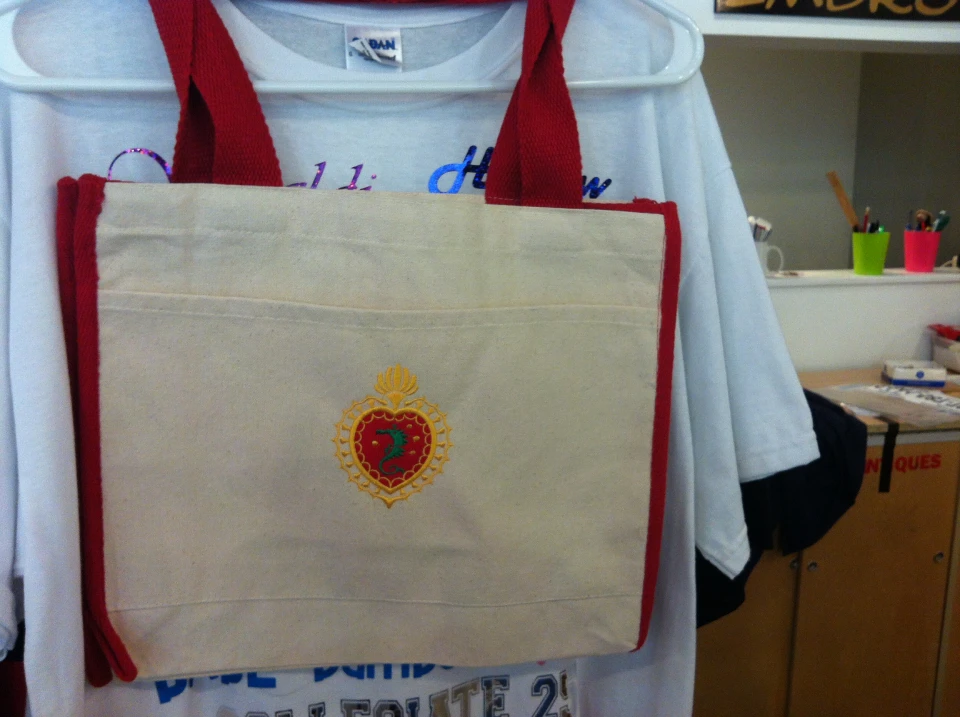The Art of Custom-made Needlework: Opening the Tricks to Creating Distinct and Memorable Layouts
Needlework, a craft soaked in tradition and virtuosity, holds within its intricate stitches the power to transform textile into a canvas of one-of-a-kind expression. The tricks to producing personalized embroidery layouts that mesmerize the eye and leave an enduring impact depend on a fragile balance of method, creativity, and focus to information. As we look into the world of customized needlework, we reveal the nuanced interplay in between thread selection, stitch intricacy, and design customization that elevates a mere garment to a job of art. Join us on a journey with the art of personalized embroidery as we decipher the enigmas behind crafting truly extraordinary and distinctive productions.
Choosing the Right Needlework Threads
When choosing needlework threads, what key elements should you consider to make certain the best outcomes for your custom layouts? The selection of embroidery thread is vital in figuring out the last result of your stitched design.
Moreover, the weight or density of the string plays a significant function in the look of the needlework. Thicker strings can add measurement and texture to your design, while finer threads are excellent for detailed details and little text. Additionally, taking into consideration the shade fastness and washability of the string is essential to make sure that your personalized layouts keep their quality and vibrancy in time. By very carefully examining these elements and choosing high-grade strings that satisfy your particular demands, you can improve the visual appeal and long life of your embroidered developments.
Discovering Various Stitch Strategies
To look into the world of 'Checking out Different Stitch Methods', one must realize the details and subtleties that each stitching approach brings to the art of needlework. Various stitch methods not only include visual passion yet likewise contribute to the total structure and dimension of the layout. One prominent stitch method is the satin stitch, which entails closely stuffed parallel stitches to produce a smooth and glossy surface, perfect for filling out forms and producing strong lays out.
On the other hand, the backstitch is a functional technique often utilized for describing and adding great information. It involves sewing backward to produce a strong line of embroidery. In addition, the French knot stitch adds a tactile aspect to layouts, ideal for producing distinctive accents like flower facilities or decorative touches.
Checking out various stitch techniques permits embroiderers to play with light, shadow, and deepness within their layouts, elevating the visual allure and artistic high quality of their needlework jobs. By understanding various stitching try this site techniques, one can open endless opportunities for creating special and remarkable custom embroidery items.
Incorporating Personalized Design Aspects
Having actually explored the ins and outs of different stitch strategies such as the satin stitch, backstitch, and French knot, the focus now moves in the direction of incorporating individualized style components in custom embroidery jobs. Individualized style aspects play a crucial duty in making needlework tasks absolutely one-of-a-kind and unforgettable. One way to integrate customization is by including initials, names, or considerable dates to the layout. This not just adds a tailored touch yet likewise enhances the sentimental value of the embroidery item.
An additional means to include tailored style components is by including icons or concepts that hold unique meaning to the recipient or mirror their interests and individuality. Incorporating a preferred blossom, animal, or hobby-related symbol can make the embroidery design much more purposeful and customized. In addition, choosing colors that reverberate with the recipient or straighten with the intended style can better enhance the personalization of the needlework job.
Mastering the Art of Color Sychronisation
One key aspect of shade sychronisation is recognizing color theory. This consists of understanding exactly how various colors engage with each other, the emotions they communicate, and how they can be integrated to develop visually appealing styles. By applying shade theory principles, embroiderers can develop unified color combinations that boost the overall appearance of the layout.
Additionally, taking notice of contrast is vital in color sychronisation. Making use of contrasting shades can help specific aspects of the design pop, improve clarity, and develop an aesthetically dynamic needlework edward sexton suit item. By grasping the art of shade sychronisation, embroiderers can boost their styles and create remarkable items that resonate with clients and visitors alike.
Enhancing Structure With Advanced Needlework Stitches

Bullion knots, on the various other hand, can be made use of to create twisted, ropelike elements that include a luxurious feeling to the needlework. Exploring with these sophisticated embroidery stitches enables you to push the boundaries of traditional embroidery and develop absolutely special and visually enticing appearances in your styles.
Final Thought
In conclusion, the art of custom needlework includes a combination of selecting the best threads, discovering different stitch methods, incorporating tailored layout aspects, understanding shade coordination, and boosting structure with sophisticated stitches. By understanding and implementing these crucial elements, embroiderers can produce unique and remarkable styles that showcase their creative thinking and ability. Embroidery enthusiasts can open the secrets to developing stunning and bespoke items that stand apart and leave a lasting impact.
Comments on “Individualized Lab Coats with Embroidery for Medical Professionals”